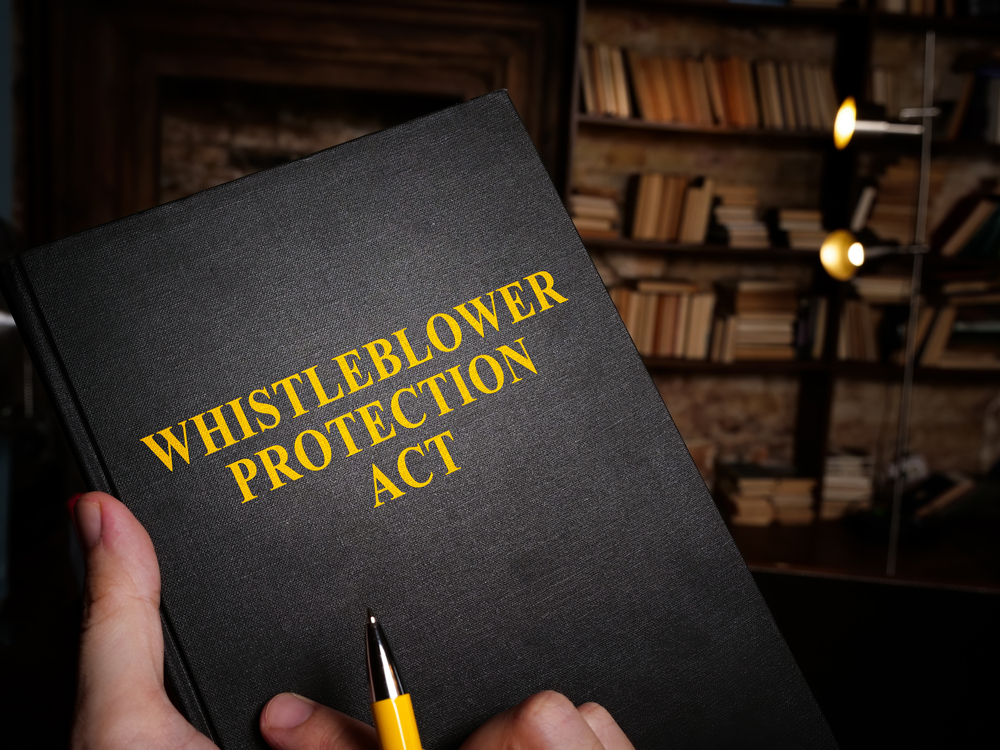If you are brave enough to speak up when you see wrongdoing or fraud in the workplace, as a whistleblower, you should be protected from retaliation by an employer. Unfortunately, this is not the case, even though there are federal, state, and local laws that offer protections to assist whistleblowers. But let’s take a closer look at the history of whistleblower protections and the agencies involved in handling whistleblower cases.
Protections for whistleblowers at a federal level were established in 1989 when the Whistleblower Protection Act (WPA) was enacted by the Senate and House of Representatives of the 101 Congress. The Whistleblower Protection Act was created to help eliminate wrongdoing within the Government and to protect federal employees and applicants for employment who assist in eliminating unnecessary government expenses, fraud, waste, and abuse. The WPA also protects employees who disclose waste, corruption, and illegal activities.
Since the late 1970s, federal employees have spoken up about corruption, fraud, and wrongdoing. The Civil Service Reform Act of 1978 laid the groundwork for the Whistleblower Protection Act. The Civil Service Reform Act was created to improve Government operations and productivity and protect employees from unfair or unwarranted practices. It abolished the U.S. Civil Service Commission and re-distributed its functions amongst three new agencies in an effort to make those who are part of public service more efficient. The Whistleblower Protection Act strengthened several weaknesses of the 1978 legislation – making it easier for whistleblowers to prove incidents of potential retaliation. Additionally, the Whistleblower Protection Act recognized the right of a federal employee to disobey an illegal order.
Signed into law by President Obama, the Whistleblower Protection Enhancement Act of 2012 (WPEA) closed administrative loopholes present in the WPA. The enhancement act also ended the Federal Circuit Court’s monopoly on appeals. The WPEA protects federal employees who have made “any disclosure of information” where they reasonably believe there is evidence of wrongdoing. When the WPEA was introduced and passed, each member of the 112th Congress voted in favor of this act.

Whistleblower Protections, Reporting and Investigations
Under the WPA and WPEA, federal government employee protections are provided to those who have made “any disclosure of information” where they reasonably believe there is evidence of fraud, wrongdoing, or misconduct. These whistleblower protections apply to the lawfully sharing of a violation of a law, rule, or regulation, a specific and substantial danger to public safety or health, abuse of authority, gross waste of funds, or gross mismanagement. Reporting these incidents of fraud and mismanagement prohibits whistleblowers from retaliation – which may include dismissals, demotions, and pay cuts.
Various agencies handle federal employee and private sector whistleblower complaints and retaliation. The Office of the Special Counsel (OSC) investigates whistleblower complaints of retaliation within the federal government’s executive branch from current federal employees, former employees, and applicants for federal employment. The Merit System Protection Board (MSPB) is a quasi-judicial agency that hears and rules on appeals of whistleblower complaints. The Court of Appeals for the Federal Circuit was established as the only court empowered to hear appeals from the MSPB.
In addition, the WPEA established the Whistleblower Protection Ombudsman. The Ombudsman’s role is to educate federal employees about prohibitions on retaliation for protected disclosures and educate agency employees who have made or are contemplating making a protected disclosure about the rights and remedies against retaliation for protected disclosures.
Under the U.S. Department of Labor, five agencies, including the Occupational Safety and Health Administration (OSHA), enforce whistleblower and anti-retaliation laws for private sector employees. OSHA’s Whistleblower Protection Program enforces the provisions of more than 20 federal laws protecting employees.
Types of Whistleblower Cases
The most common whistleblower cases include Medicare fraud, the Affordable Healthcare Act, Veterans’ benefits, Social Security, and defense spending. Other businesses and industries, like education, construction, hospitals, and nursing homes, have also been the subject of whistleblower claims. Fraud and wrongdoing are possible at any level of government and business.
Public, private, and government service employees and management may not always operate in the best interests of the vulnerable people they serve and support. Whistleblowers play a vital role in stopping incidents of fraud and misconduct. When whistleblowers come forward, they put their lives, families, and careers at risk, but by speaking out, these courageous people are acting in their best interests to keep our country safe from harm and loss.
How An Attorney Can Help with Whistleblower Claims
Consulting a whistleblower attorney can help navigate the complexities of whistleblower lawsuits, including timelines involved, protections offered, and compensation. Some whistleblowers may be eligible to receive compensation from the government for their honesty. Under the False Claims Act, a whistleblower is only considered for a reward if they are the first to file a qui tam lawsuit. If multiple whistleblowers file a claim, only one person may be eligible for financial compensation. Qui tam lawsuits allow private citizens to report fraud on behalf of the U.S. government and receive a share of the recovered funds. If the U.S. government decides to join the lawsuit, it takes over the case, but if it declines to intervene, the whistleblower can proceed on their own. In either scenario, the whistleblower is awarded a percentage of the recovered funds.
Consulting attorneys with proven experience in qui tam lawsuits can help your whistleblower claim be successful. Herman Herman Katz can answer your whistleblower questions in a free, confidential consultation. Contact us online, via live chat, or call 844-943-7626 for more information.
Free Case Evaluation
More About HHK
Other Whistleblower Law News
Lawsuits involving Medicare fraud are making headlines regularly. Investigators frequently expose and charge people with healthcare fraud, yet billions are still lost each year.
In 2012, Tax Court Rule 345 was adopted to allow […]



